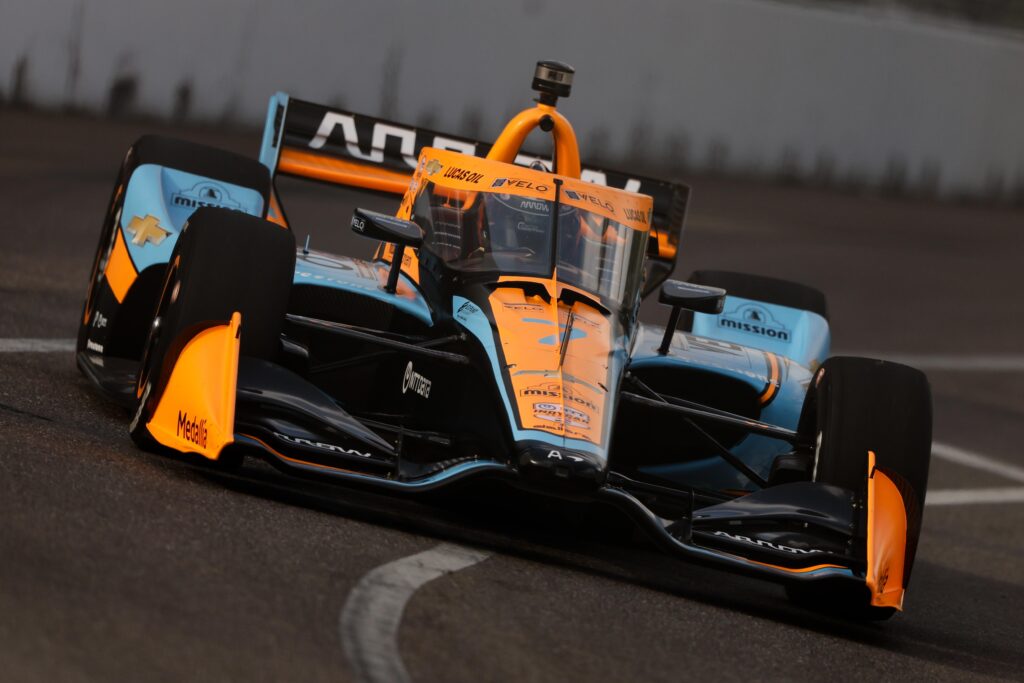In a groundbreaking shift for motorsport broadcasting, Fox Sports has announced that it will acquire the rights to broadcast IndyCar starting in 2025. This move marks the end of a 16-season partnership between IndyCar and NBC Sports, bringing a new era of visibility and innovation to the sport. Fox Sports will now hold the broadcast rights to two of the most prestigious races in the world: the Indianapolis 500 and NASCAR’s Daytona 500.
A Historic Transition
Fox Sports’ acquisition of IndyCar represents a significant transition in the broadcasting landscape of motorsports. Starting in 2025, Fox Sports will air all 17 IndyCar races on its network, along with the two days of qualifying for the Indianapolis 500. This agreement ensures that IndyCar races will receive comprehensive national broadcast coverage, a commitment that NBC Sports was unable to match.
“This represents unrivaled exposure and provides an unparalleled growth opportunity for the most competitive and entertaining motorsport on the planet,” said IndyCar CEO Mark Miles. “Fox Sports is a fully committed partner, ready to bring engaging and technically innovative coverage to millions of fans across the country while also promoting IndyCar thoroughly across all its platforms.”
The End of an Era with NBC
NBC Sports has been the home of IndyCar since 2009. The network’s most recent three-year extension was valued at approximately $20 million per season. However, NBC’s strategy in recent years included moving much of its IndyCar coverage, including practice and qualifying sessions, to its streaming service, Peacock. This shift meant that many fans had to rely on cable or streaming services to catch the action.
One of the most notable examples of this strategy’s impact was the Long Beach Grand Prix. This year, NBC moved the race to USA Network, resulting in a significant drop in viewership. The race garnered just over 300,000 viewers, compared to 1.026 million viewers in 2023 when it aired on NBC. This move highlighted the limitations of NBC’s broadcast reach and the potential benefits of Fox Sports’ broader national coverage.
Fox Sports’ Commitment to Motorsports
Fox Sports’ existing portfolio includes broadcasting the first half of the NASCAR schedule, making it a significant player in the motorsports broadcasting arena. NASCAR recently announced a seven-year media rights deal, diversifying its coverage across multiple networks and streaming platforms. The addition of IndyCar to Fox Sports’ lineup solidifies the network’s dominance in motorsports broadcasting.
Terms of the deal between IndyCar and Fox Sports have not been disclosed, but the commitment to network broadcasts for all 17 races and the Indianapolis 500 qualifying sessions is a clear indicator of the network’s dedication to the sport. This level of exposure is expected to enhance IndyCar’s visibility and attract new fans, driving growth and engagement.
The shift to Fox Sports promises to bring fresh energy and innovative coverage to IndyCar. With Fox’s established reputation for high-quality sports broadcasting, fans can expect a new level of engagement and technical sophistication in race coverage. This move also opens up new opportunities for promoting IndyCar across Fox’s various platforms, potentially reaching a wider and more diverse audience.
The transition of IndyCar’s broadcast rights to Fox Sports in 2025 marks a significant milestone in the history of the sport. After 16 seasons with NBC, the move to Fox Sports is set to bring unparalleled exposure and growth opportunities for IndyCar. Fans can look forward to enhanced coverage, innovative broadcasting techniques, and a broader reach that will elevate the sport’s profile.
As IndyCar races into this new chapter with Fox Sports, the excitement and anticipation among fans and stakeholders are palpable. The combination of the Indianapolis 500 and Daytona 500 under one network’s umbrella is a powerful testament to Fox Sports’ commitment to motorsports. The future of IndyCar broadcasting looks bright, and fans around the world are eager to experience the next era of high-speed, high-octane racing.
